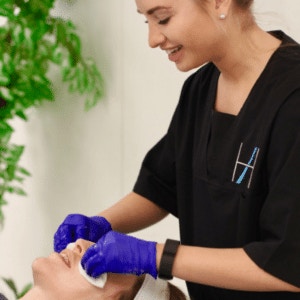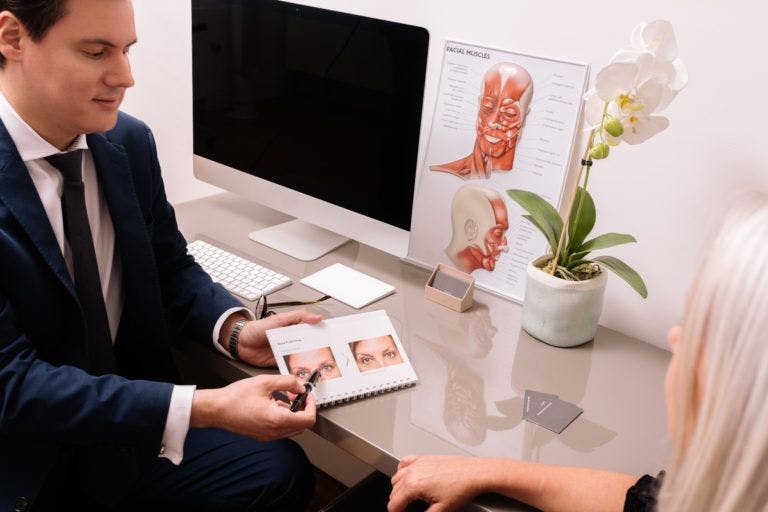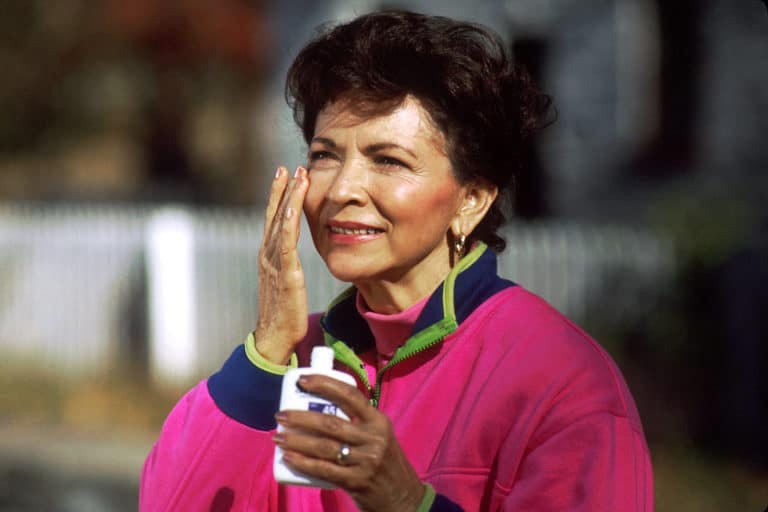5 Reasons To Include Skin Health In Your Aesthetics Business

Many injectors take a skin-first approach to aesthetics. But putting skin health at the centre of your practice can help both your patients and your business. Here, aesthetics and skin specialist Dr Raul Cetto explains how…
1. Educating clients is good business
Every patient is looking for skin care products that deliver clinical results, and whenever I talk to a patient about their needs, I take time to inform them that any product that will be effective will also have a reaction. This means that for around five or six weeks, skin may redden, flake etc before the desired improvement is noticed. Reassuring clients about this process means that they understand how medical grade products work, also that their over-the-counter cosmetic products are designed to deliver a good look, feel and smell, but may not necessarily achieve clinical effectiveness.

2. Skin health dramatically affects aesthetic treatments
Skin is the body’s largest organ and undergoes change throughout life. When patients come to us for injectable treatments they often have a clear goal – they want the firm, smooth, soft skin that’s strongly associated with health (and youth!)
While we can definitely positively influence influence facial posture with injectables, this may appear less successful – or even go largely unnoticed – if the underlying skin health isn’t good.
3. The major negative skin influencers are easily treated
Every cosmetic practitioner knows that the biggest enemies of skin health are sun exposure and oiliness, but it can be easy to overlook these perils which eventually lead to both damage and disease.
Oil blocks the sebaceous glands, leading to the potential for acne and rosacea – and also creating ideal conditions for bacterial growth. Sun exposure causes the majority of facial wrinkles and age spots which patients often think of as ‘normal ageing’ and over time ultraviolet light damages the elastin fibres in the skin. Both threats are easily managed under clinical supervision, which can improve overall skin health as well as augmenting specific targeted injectable results.

4. How do we talk about evidence-based rejuvenation with patients?
While almost every aesthetic treatment claims to rejuvenate the skin, only a limited number actually have solid scientific evidence. Fellow physicians are often as baffled by this as patients and market saturation of ‘active ingredient cosmetics’ can lead to individuals investing a lot of money in products with little or no dermatological value.
Using clinical trial evidence, we can show patients that treatments like retinoic-acid (synthetic derivative of Vitamin A) often known as retinol, have excellent results at multiple levels but only when used at medical grade concentrations. The difference between products that merely contain retinol and those that have real effects is the fact that anything that produces such powerful results is only going to be available on prescription. Simply put, the best way to know whether a product works is whether you need a prescription for it.
5. Clinical cosmetic interventions are more effective than ever
Cellular level treatment is now possible to tackle problems below the skin surface. The activation of specific cells can resolve hyper-pigmentation to deliver a more even skin tone and activating keratinocytes improves the quality of fibroblasts and cells that lead to collagen production, creating to healthier looking more hydrated skin with better texture and volume. This achieves exactly the results for which patients often present.
There’s a compelling case for making skin health central to our consultations and our prescribing, first, it helps our patients, second, it improves our results and third, it benefits our reputations as excellent prescribers in aesthetic medicine.
About the Author
Dr Raul Cetto is an aesthetic doctor, clinical trainer, and Key Opinion Leader for Teoxane UK. He has a background in head and neck surgery, and has studied with leading aesthetic doctors including Dr Zein Obagi. Raul practises non-surgical procedures and principles of skin health at his Clinic 1.6 in West London.
Follow his work on Instagram.
Want to learn more?
If you’re interested in learning principles of skin health and their application in aesthetic medicine, take a look at our Cosmetic Dermatology training program – an intensive course for practising injectors. If you’re new to aesthetics, consider our intensive Aesthetic Medicine Specialty Training for ambitious medical professionals, which includes comprehensive training in both injectables and cosmetic dermatology.
All information correct at the time of publication
Download our full prospectus
Browse all our injectables, dermal fillers and cosmetic dermatology courses in one document
By submitting this form, you agree to receive marketing about our products, events, promotions and exclusive content. Consent is not a condition of purchase, and no purchase is necessary. Message frequency varies. View our Privacy Policy and Terms & Conditions
Attend our FREE open evening
If you're not sure which course is right for you, let us help
Join us online or in-person at our free open evening to learn more
Our Partners













STAY INFORMED
Sign up to receive industry news, careers advice, special offers and information on Harley Academy courses and services

